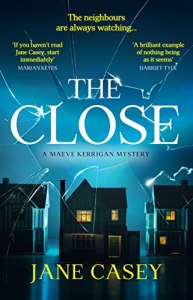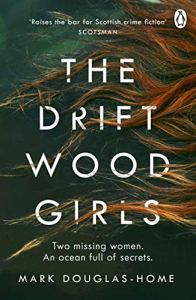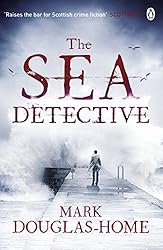This year has been a good time for reading books, but not a good time as far as writing reviews goes and I am way behind. This is my third set of mini reviews in an attempt to catch up with the backlog.
The Close by Jane Casey 2*

I read The Close because I’ve read and previously enjoyed Jane Casey’s Maeve Kerrigan books. Maeve is a Detective Sergeant with the Metropolitan Police – in the first six books she was a detective constable. She and her boss Detective Inspector Josh Derwent are the two main characters. They have a confrontational working relationship and their spiky relationship is a recurring theme in the books. They are all police procedurals, fast-paced novels, with intriguing and complex plots. I thought that the Maeve/Josh relationship took a significant turn in the 9th book and I wondered what would happen next!
But it was simply disappointing. Maeve and Josh went undercover, carrying out surveillance in Jellicoe Close, whilst posing as a couple. As the synopsis describes it there are some dark secrets behind the neat front doors, and hidden dangers that include a ruthless criminal who will stop at nothing. What I really did not expect was that this would result in their relationship becoming such an abusive one.
Piece of My Heart by Peter Robinson 4*

I really enjoyed this book, the 16th Inspector Banks, but I think it reads well as a standalone book. This is the summary from Amazon:
As volunteers clean up after a huge outdoor rock concert in Yorkshire in 1969, they discover the body of a young woman wrapped in a sleeping bag.
She has been brutally murdered. The detective assigned to the case, Stanley Chadwick, is a hard-headed, strait-laced veteran of the Second World War. He could not have less in common with – or less regard for – young, disrespectful, long-haired hippies, smoking marijuana and listening to the pulsing sounds of rock and roll. But he has a murder to solve, and it looks as if the victim was somehow associated with the up-and-coming psychedelic pastoral band the Mad Hatters.
In the present, Inspector Alan Banks is investigating the murder of a freelance music journalist who was working on a feature about the Mad Hatters for MOJO magazine. This is not the first time that the Mad Hatters, now aging rock superstars, have been brushed by tragedy.
Banks finds he has to delve into the past to find out exactly what hornets’ nest the journalist inadvertently stirred up.
This must be one of the longest of the Inspector Banks books, helped along by Robinson’s descriptive writing of the countryside which I love, and also details of the music Banks listens to (in this case a lot of 1960s music). He also goes into detail describing what each character looks like and the clothes they are wearing. I liked the movement between the two time periods, which highlights the differences in police procedure.
The Driftwood Girls by Mark Douglas-Home 4*

This is the synopsis on Goodreads:
Kate and Flora have always been haunted by a mystery – their mother, Christine, vanished without trace when they were children. But now Kate has a more urgent problem: Flora has disappeared too. In desperation, she searches Flora’s house, and finds a scrap of paper with a name scribbled on it: Cal McGill.
Cal is a ‘sea detective’: an expert in the winds and the tides, and consequently adept at finding lost things – and lost people. Can Cal find Flora?
And might he even know the secret of what happened to their mother, all those years ago . . . ?
My thoughts:
I enjoyed reading the first three Sea Detective novels, my favourite being The Malice of Waves, the 3rd book. So I was expecting to enjoy The Driftwood Girls, the 4th book. Cal McGill is an oceanographer who tracks floating objects, including dead bodies, using his knowledge of tides, winds and currents to solve mysteries no-one else can. I was disappointed as the sea detection plays only a small part in this book. It’s unevenly paced, introducing several seemingly unconnected characters and for a while I found it difficult to distinguish between them, having to keep checking back who was who. In the earlier books I noted that Cal is a strong independent character, but in this he seems to have become even more of a loner in this book, even more remote and withdrawn.
It certainly isn’t as gripping as the other books, but I did want to find out how it would end. It was only in the second part of the book that I began to get an idea of what was happening with each set of characters and how they could be connected. Thus the plot consists of several stories interwoven and told through several points of view. It is complicated and convoluted and as the plot unfolds it all ties together too neatly, in my opinion, with too many coincidences and improbabilities.
The settings are the best parts as it has a great sense of location, whether it is in Scotland or Texel, the most southerly and largest of the West Frisian Islands lying off the Dutch mainland between the North and Wadden Seas. The characters on Texel, particularly Olaf, are the most intriguing and for most of the book I had no idea how they were relevant to the rest of the characters. Olaf, like Cal is a loner, spending his days beachcombing and making driftwood figures with no mouths from the flotsam washed up on the beach.

 Lovereading.co.uk
Lovereading.co.uk